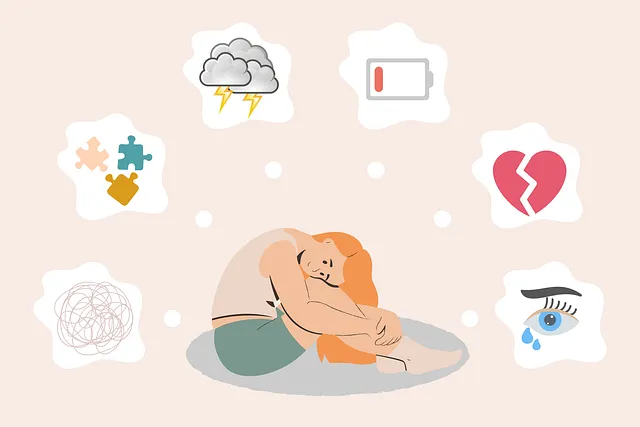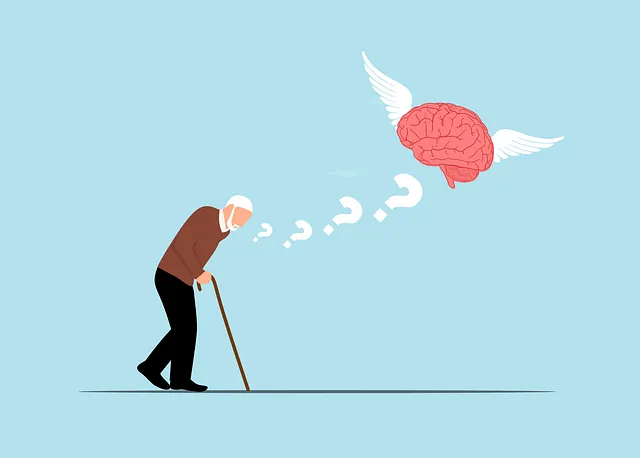Depression, triggered by genetics, brain chemistry, stress, and lifestyle, can be mitigated through self-care, exercise, sleep, mindfulness, and social connections. For severe cases, understanding the availability of specialized care is crucial, particularly examining if Kaiser offers inpatient mental health services in Lakewood for crisis intervention and early detection support.
Depression is a prevalent yet treatable condition, affecting millions globally. This article offers a comprehensive guide to prevention strategies, focusing on understanding the root causes and implementing effective solutions. We explore how lifestyle adjustments, such as improved sleep hygiene and exercise routines, can significantly enhance mental well-being. Additionally, we delve into professional support options, including questioning whether Kaiser offers inpatient mental health services in Lakewood, providing resources for those seeking specialized care.
- Understanding Depression and its Triggers
- Lifestyle Changes for Improved Mental Well-being
- Professional Support and Resources: Does Kaiser Offer Inpatient Mental Health Services in Lakewood?
Understanding Depression and its Triggers

Depression is a complex mental health condition that significantly impacts an individual’s daily life and overall well-being. It goes beyond mere sadness or temporary feelings of low mood; it involves persistent symptoms like persistent sadness, loss of interest in activities once enjoyed, changes in appetite and sleep patterns, fatigue, difficulty concentrating, and in severe cases, suicidal thoughts. Understanding what triggers depression is a crucial step in prevention.
Various factors can contribute to the onset of depression, including genetic predisposition, brain chemistry imbalances, hormonal changes, stressful life events, and environmental influences. For instance, does Kaiser have inpatient mental health services in Lakewood? Such facilities offer specialized care for individuals experiencing severe depression or other mental health crises. Burnout prevention is also vital; chronic stress and overwork can lead to emotional exhaustion, a risk factor for depression. Cultivating a self-care routine that prioritizes physical and mental well-being, including regular exercise, adequate sleep, and practices like mindfulness or positive thinking, can help mitigate these triggers.
Lifestyle Changes for Improved Mental Well-being

Depression prevention starts with incorporating lifestyle changes that promote mental well-being. Regular physical activity, a balanced diet, and sufficient sleep are foundational elements in maintaining a positive mindset. Engaging in activities like yoga or meditation can significantly enhance emotional regulation, providing tools to manage stress and difficult emotions effectively. Additionally, building and maintaining strong social connections is vital; connecting with loved ones offers support and a sense of belonging, which are crucial in preventing feelings of isolation often associated with depression.
If you’re seeking professional guidance, consider reaching out to mental health experts at Kaiser’s inpatient facilities, such as those in Lakewood. They offer specialized care and crisis intervention services designed to address severe mental health episodes. Regular check-ins with healthcare providers can also facilitate early detection of potential depressive episodes, allowing for timely interventions like risk assessments. This proactive approach ensures that individuals receive the necessary support before symptoms escalate.
Professional Support and Resources: Does Kaiser Offer Inpatient Mental Health Services in Lakewood?

Depression is a serious yet treatable condition, and an essential step towards prevention is recognizing its triggers. By understanding personal risk factors and adopting positive lifestyle changes, individuals can significantly improve their mental well-being. Moreover, seeking professional support through resources like Kaiser’s inpatient mental health services in Lakewood offers specialized care when needed. Remember that with the right approach, managing and even preventing depression is achievable.






